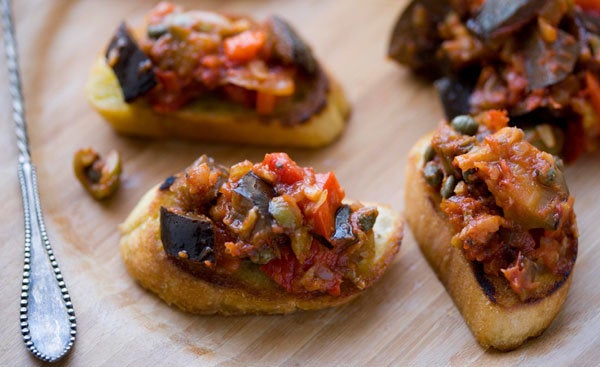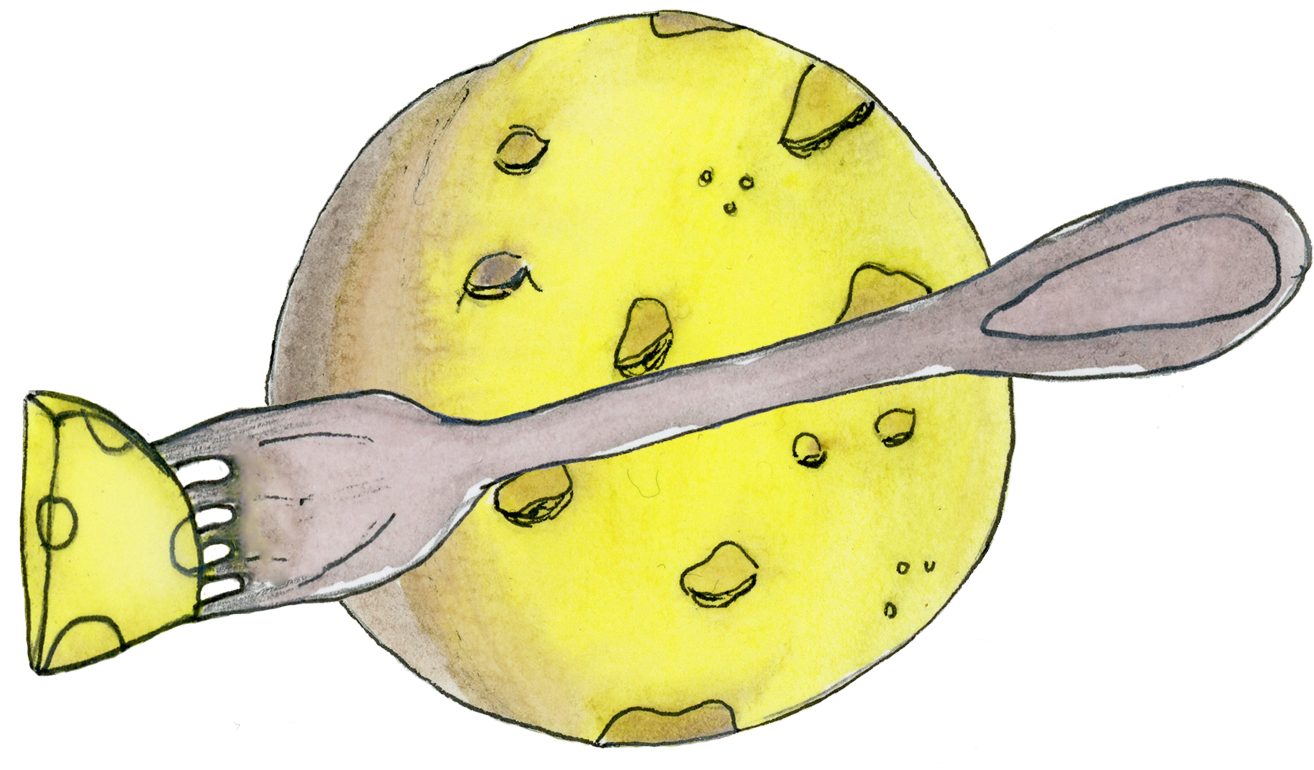interviews
Martha Rose Shulman April 2023

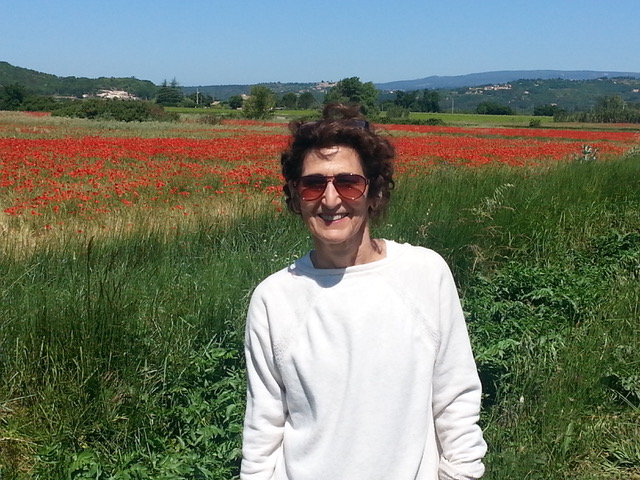
Where
did you grow up and what did you grow up eating?
I grew up in
Westport, Connecticut and I grew up eating a lot of meat. We were a very prime
meat oriented family. Thick hamburgers, lamb chops, all of that.
Did you
like eating meat?
I didn’t
know that there was any other way to eat!
I was so surprised the first time I had a meal with someone who didn’t want to eat meat.
I was so surprised the first time I had a meal with someone who didn’t want to eat meat.
When did
you become a vegetarian?
When I lived in Austin in the 1970s. My life led
me to a lot of different places, and at one point I lived in South Texas working with the farm workers, and later I moved to Austin. By then I was doing a lot of yoga and
felt like I needed to clean up my act. Becoming a vegetarian was more of a
personal act than political or spiritual one. I wanted to be more meditative in
my daily life. And so I just needed to learn how to cook that way. The first
time I tried to make a vegetarian meal, I just didn't understand anything. Then I figured out that you have to learn about grains. And so I learned about
grains and taught myself.
How did
you end up in South Texas?
The summer
after my senior year in high school, I went on an American Friends Service
Committee Summer Work Project. I was very politically active, it was 1968; there was a lot going on. The project took place in Michigan working with
migrant farmworkers. I met a lot of Mexican Americans – there was no
real Mexican diaspora in Connecticut yet. And I just fell in love with that culture and
started studying Spanish. The next
summer I got a job working with migrant farmer workers again. And I thought, oh,
this is so cool, I want to learn more, I'll take a semester off from Harvard.
Oh, wow. What
were you studying at Harvard?
I was going
to major in French and American history and literature. But I never went back. Eventually I learned French anyway because I moved to France in the ‘80s. I got a job in the Rio Grande Valley with a
migrant Headstart organization, and stayed there for 2 ½ years. That's how I ended up in Texas. From the Valley, I moved to Austin, where I lived until I was 31.
How
did you start writing cookbooks?
I loved
cooking. When I moved to Austin, I went back to school at the University of
Texas. I was really getting into vegetarian cooking and very interested in
health. So I thought I should do pre-med and go into medicine and
nutrition. But I was cooking and cooking and cooking. And when I
was 23, I threw this big party, it was like a big catering job, you know, but
it was my party. And at the end of that I just had this epiphany. I thought,
this is really what I want to do and I dropped out of school again! I
started teaching vegetarian cooking classes. And then I started a Supper
Club, which was a completely original idea then. And 25 to 30 people came for
dinner once a week, one sit down meal and they paid $1.50.
Wow, why so
cheap?
Well,
because that's what people could afford. It paid for itself. I only spent about
$30 on the food, I didn't do wine but people brought their own. It was a
different time though, it was 1973. My rent was $65
a month. You could really do what you wanted to do in those days. And
there was never a problem with getting a job, whether you had a college degree
or not. I supported myself by teaching cooking classes and hosting the supper club.
I also modeled for figure drawing classes at the art school and eventually had a vegetarian catering service. I just cobbled things together. After I'd been doing my supper club for two years, I took
a month off and wrote a book; that was my first book, The Vegetarian Feast. It took me two years to sell that book because if a publisher had one
vegetarian cookbook, they wouldn't publish two. It finally landed on the
right desk at the right time at Harper and Row. The book did really well; it won what was then the precursor of the James Beard Award.
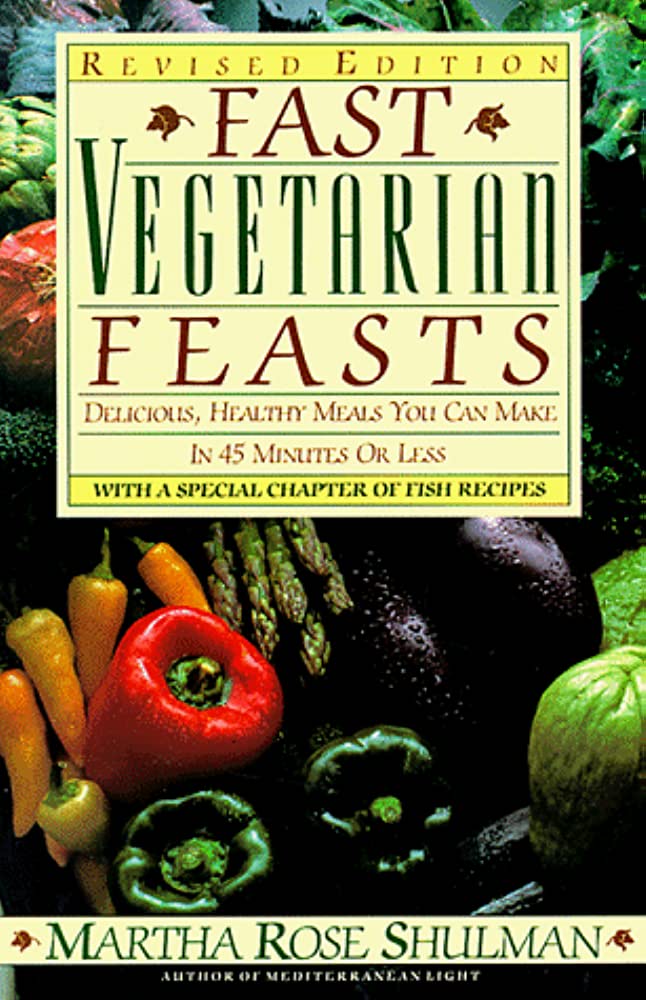
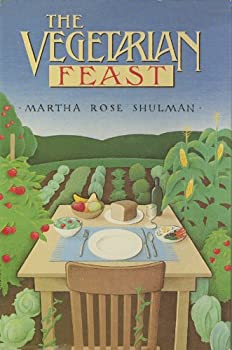
Oh wow,
really?
They
were called Tastemaker Awards. After that book I wrote Fast Vegetarian
Feasts which was published in 1982. Then I went to live in Paris with a couple of friends who were going for a year. I ended up stayed there for 12 years, and kept writing books.
And how
did living in France influence your cooking?
Oh, it had a huge impact on my cooking. I think when I was starting out as a vegetarian cook, I really wanted to create a cuisine that wasn't just a brown rice and lentil kind of cuisine. And the cooks who influenced me weren't vegetarian cooks. I was very influenced by Julia Child especially. But my food was still pretty busy. I used a lot of ingredients in my dishes and France helped me to simplify my palate. The produce was so incredible, and I learned a lot about fish cookery.
Did you
go to any cooking classes while you lived in France?
Not so much cooking classes as informal stages. I worked with a fish chef. I spent a month cooking with Lulu Peyraud at Domaine Tempier during the grape harvest. And I spent a couple of weeks at Max's Poilâne’s bakery (Max is Lionel’s brother), where we made the same bread that Lionel Poilâne made. I also considered going to La Varenne for their stagiaire program, but I didn't eat meat. I could have used it for my technique, but I was going to be working so hard cooking stuff that I wasn't interested in cooking or eating.
What part
of Paris did you live in?
In the sixth
arrondissement, near Saint-Germain-des-Prés.
Can you
tell me about your relationship with Julia Child and how you first connected
with her?
I just
idolized her. I thought she was such an eloquent writer and such a good
teacher. So I wrote her a fan letter in 1976, this was before I went to Paris.
Did she
live in Paris at the same time as you?
No, she lived in Paris post-World War II. She was already famous for her TV program and for Mastering the Art of French Cooking by then. She lived in Cambridge, Massachusetts. In my letter, I told her about my vegetarian
cooking and sent her my brochure for my catering service called Moondream Catering, that I started after the supper club. She wrote back and was very supportive. I was also
trying to do some television then with local TV stations and she was helpful on
that front too. She said, “Oh, why don't you send your book to my editor, Judith
Jones.” So I did, but Judith Jones had published The Vegetarian Epicure,
and that was a really good book; it was the first
sophisticated vegetarian cookbook. Judith was complimentary, but said, we
already have The Vegetarian Epicure and don’t have room for another vegetarian book on our list.
Did
you ever get to meet Judith Jones?
I did, but
it was not related to her reading my first book. She was the neighbor of a friend that I visited in Vermont and he wanted me to go meet her.
I was in
Vermont because when I moved to France I took my car. I drove from Austin to
Montreal and took a boat with my car and friends.
Wow how long
was that boat ride?
It was a
really fun 10 days.
Oh, you
have so many adventure stories. I can’t wait to read your memoir. How did you
end up writing recipes for the New York Times?
The editor of the Science section of the NYT, which also
includes Health, had been an editor at Health Magazine when I was a
contributing editor for them in the 1990s. One day he got in touch with me out
of the blue and told me that the health pages needed a recipe component, and
would I be interested in proposing something for their online section. I came up with the
idea of picking one theme every week and doing a different recipe each
day -
5 new recipes a week. It started in July 2008 and my first column was on
tomatoes.
Every so often the Food section would also run a recipe in print, if they had space.
When they started their NYT Cooking app, in 2015 I think it was, it was no
longer profitable for the Health section to run the recipes. So I went over to the food section
with one recipe a week, and eventually they said they didn’t have enough space
for me. But I’d been doing it for 8 years by then and had written about 1600 recipes on
the site, so I felt ok with it.
Wow that’s quite a portfolio – a nice legacy to have. How do you think vegetarian cooking culture has changed since you started writing vegetarian recipes?
It's
become very mainstream. Also, we're much more sophisticated in our knowledge of
many cuisines now. And when I started cooking, we didn't have the array of
grains that we have today to work with. When I went to the health food store,
there was brown rice, of course, that was the big one. And we had bulgur, wheat
berries, triticale, which is a wheat and rye hybrid. You could get whole rye but we didn't use it much. And millet, which we didn’t really know how to cook.
And then, lentils of course.
Lentils and
beans, yes. I was very familiar with black beans, because I'd spent a lot of
time in Mexico and I knew how to cook Mexican food. And also back then vegetarians weren’t also vegans. We were told we had to get complete
proteins and we had to balance grains and legumes at the same time, and we had
to eat a lot of dairy. It was much heavier and there was an emphasis on
casseroles. Now it's as sophisticated as anything.
Do you
have favorite vegetarian restaurants?
I really
loved Deborah Madison’s Greens in San Francisco. It opened in 1979.
Oh my mom
loves Green’s!
I
think it's still there. Yeah, that was a really eye opening restaurant. Deborah
Madison is another sophisticated vegetarian cook.
How do
you feel about Ottolenghi?
I think he's a great cook, but when I open to one of his recipes, it's a lot of ingredients, so sometimes I take pause – and I'm somebody who doesn't mind prepping. I like everything that I've eaten from his books, though..
I agree
with you about the amount of ingredients in an Ottolenghi recipe for sure. As a
cookbook author, do you feel like you're part of a food community since your
work is solitary?
Oh, yeah. I
didn't always and I don't so much now, because I haven't really kept up with
younger food writers, which is my fault. But there was a point in my career
where I started meeting a lot of people, and it was really fun.
What part
of your career?
It was when I
moved to Northern California after Paris and I had published Mediterranean Light.
I was going to a lot of conferences and I started meeting a lot of people. I don't feel lonely in my career though. And there are plenty of online communities, if I had the time.
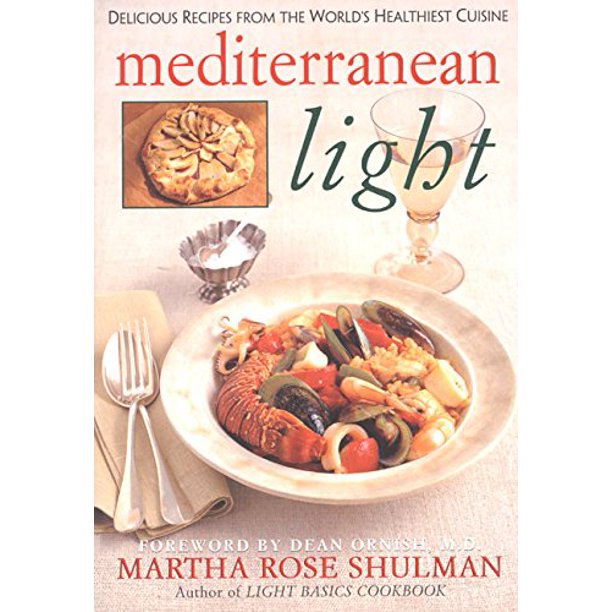
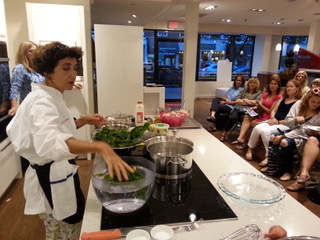
Oh ok. I
guess I personally feel like there's a lack of community as a private chef and
I just wonder about your side of the food industry.
I've always had a large community outside of my profession and I feed people all the time in my home, so I’ve never felt lonely in my work. But it was definitely fun when I started to have colleagues because food people are fun!
Yes they
are! You’re working on a memoir now. How is that going?
It’s going well. I’m working really hard on being a better writer.
I also want to do food writing, but I’m never really drawn to reading food writing, except for MFK Fisher.
Yeah she’s incredible. Right now I’m reading a few food memoirs, The Sharper Your Knife, The Less You Cry by Kathleen Flinn. She's a writer and journalist who went to the Cordon Bleu in Paris. It’s kind of a funny book about that and it's also a love story. I’m also reading Our Lady of Perpetual Hunger by Lisa Donovan. And I'm going to read the Alice Waters memoir.
I really liked that one. Did you read Blood, Bones, and Butter?
Yes that’s one of the best. It's not just food, it’s a much bigger story
Where do
you write?
Upstairs in
my office.
What time
do you start writing?
The
thing that fixes my schedule is my yoga and my swimming; I work around that.
I don't have a set time of day when I write though. I just do it whenever; the
job gets done. I work every day but at different times depending on what else
is going on.
Do you
stay up late writing?
No, usually
I have a good block in the morning and one in the afternoon. But it’s easy for
me to write. I don’t have to be disciplined to write. I don’t write every day,
but every day that I do write is a good day.
When do
you do your recipe testing?
I haven’t
had to do that in a while, but usually in the afternoon and then my husband and
I will eat the food for dinner.
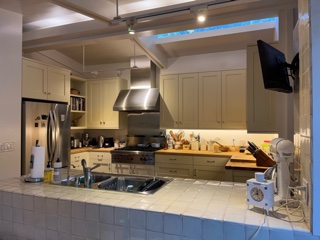
Mmm
that’s nice. One last question, do you have a favorite recipe right now?
I have
recipes that I go back to over and over. I make my granola every couple
of weeks. I have this Provençal fish stew that I do. But in terms of other
people’s recipes, I use Jacquy Pfeiffer’s pastry recipes and lately I’ve
been making this cabbage salad from the NYT that I really like.
You
cut cabbage coarsely into squares, and then you scrunch it with salt. It has a simple dressing with lemon, garlic, and olive oil and then you add a
lot of toasted nuts, I use almonds and pumpkin seeds, and chopped dill. It’s really good.
